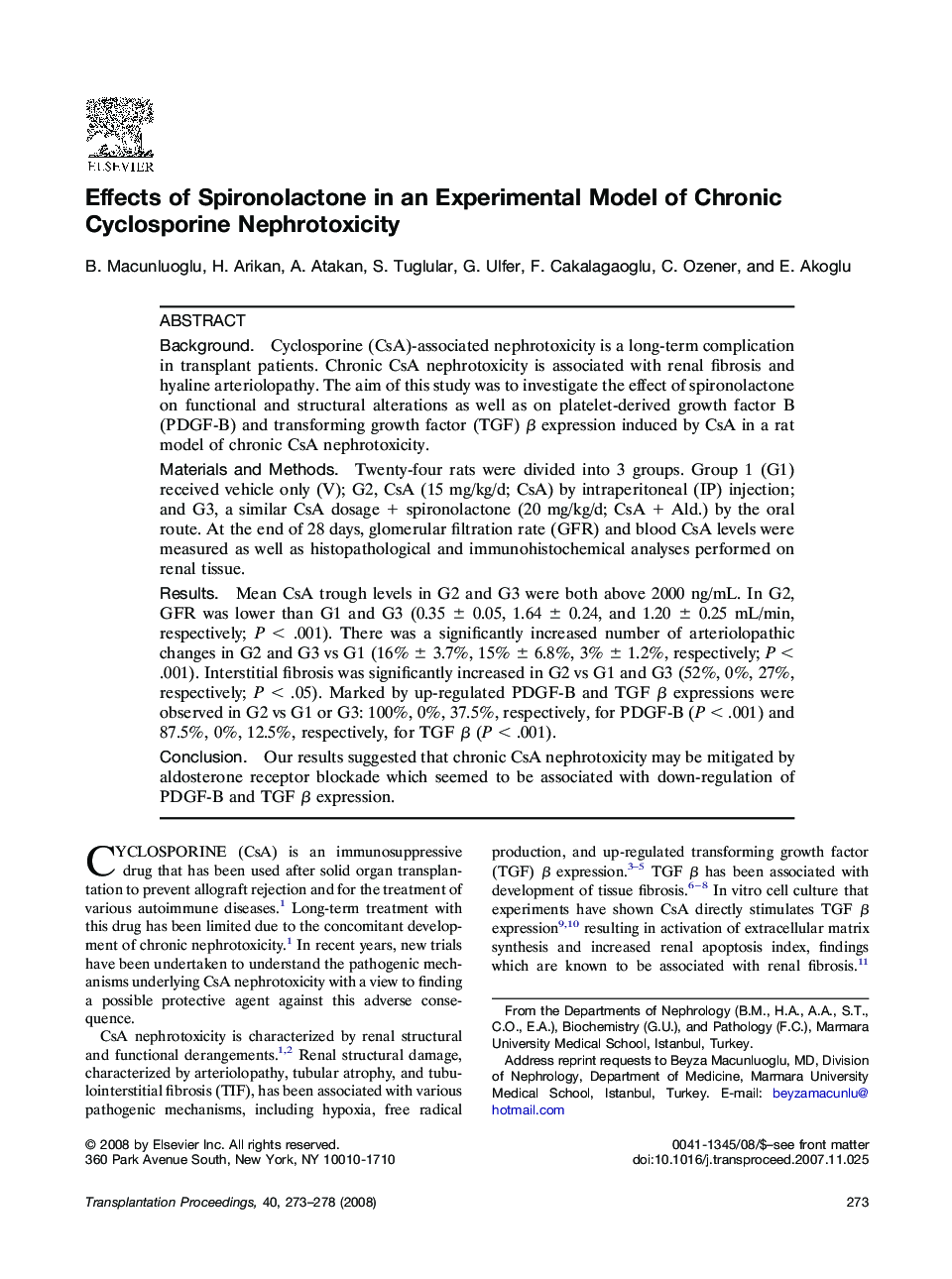| Article ID | Journal | Published Year | Pages | File Type |
|---|---|---|---|---|
| 4260484 | Transplantation Proceedings | 2008 | 6 Pages |
BackgroundCyclosporine (CsA)-associated nephrotoxicity is a long-term complication in transplant patients. Chronic CsA nephrotoxicity is associated with renal fibrosis and hyaline arteriolopathy. The aim of this study was to investigate the effect of spironolactone on functional and structural alterations as well as on platelet-derived growth factor B (PDGF-B) and transforming growth factor (TGF) β expression induced by CsA in a rat model of chronic CsA nephrotoxicity.Materials and MethodsTwenty-four rats were divided into 3 groups. Group 1 (G1) received vehicle only (V); G2, CsA (15 mg/kg/d; CsA) by intraperitoneal (IP) injection; and G3, a similar CsA dosage + spironolactone (20 mg/kg/d; CsA + Ald.) by the oral route. At the end of 28 days, glomerular filtration rate (GFR) and blood CsA levels were measured as well as histopathological and immunohistochemical analyses performed on renal tissue.ResultsMean CsA trough levels in G2 and G3 were both above 2000 ng/mL. In G2, GFR was lower than G1 and G3 (0.35 ± 0.05, 1.64 ± 0.24, and 1.20 ± 0.25 mL/min, respectively; P < .001). There was a significantly increased number of arteriolopathic changes in G2 and G3 vs G1 (16% ± 3.7%, 15% ± 6.8%, 3% ± 1.2%, respectively; P < .001). Interstitial fibrosis was significantly increased in G2 vs G1 and G3 (52%, 0%, 27%, respectively; P < .05). Marked by up-regulated PDGF-B and TGF β expressions were observed in G2 vs G1 or G3: 100%, 0%, 37.5%, respectively, for PDGF-B (P < .001) and 87.5%, 0%, 12.5%, respectively, for TGF β (P < .001).ConclusionOur results suggested that chronic CsA nephrotoxicity may be mitigated by aldosterone receptor blockade which seemed to be associated with down-regulation of PDGF-B and TGF β expression.
